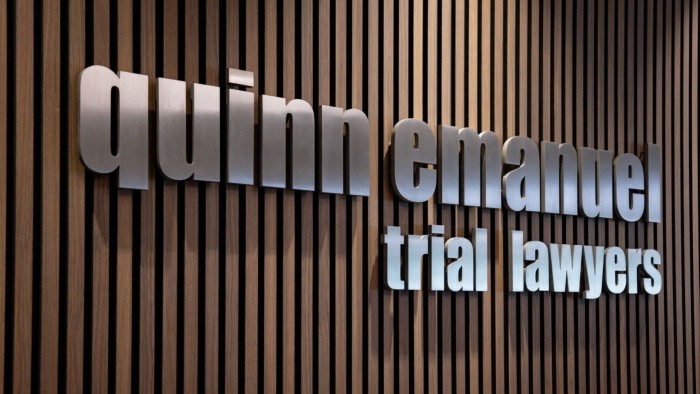Unlock the Editor’s Digest for free
Roula Khalaf, Editor of the FT, selects her favourite stories in this weekly newsletter.
Law firm Quinn Emanuel has sued a listed 3D printing company, claiming it was short-changed on a $30mn fee for winning a legal battle over a troubled merger.
Quinn represented 3D printer Desktop Metal in a Delaware court fight to complete its $183mn acquisition by larger rival Nano Dimension. A judge ordered the deal completed in March but Quinn has yet to be paid, and now claims it is owed $90mn by Nano as the successor company.
“Nano Dimension and its CEO, Ofir Baharav, have weaponised their newly acquired control over Desktop Metal, Inc. to exact revenge against the attorneys who defeated them — Quinn Emanuel,” the law firm said in the complaint filed in state court in Massachusetts, where Desktop Metal is headquartered.
Fee disputes in contested M&A transactions are not uncommon. Though Elon Musk reluctantly agreed to complete his $44bn purchase of Twitter in 2022, he is still contesting a $90mn fee paid to law firm Wachtell, Lipton, Rosen & Katz, which represented the social network in the litigation over the deal (Quinn was Musk’s law firm in that matter). More than a decade ago, Carl Icahn also sought to nullify fees owed to Wachtell after he won control of oil refiner CVR Energy, which hired Wachtell to defend it against the corporate raider.
Nano and Quinn Emanuel both declined to comment. News of the Quinn lawsuit was reported earlier by Law360.
Nano’s board approved the deal with Desktop Metal in mid-2024. Shortly after, Canadian hedge fund Murchinson, Nano’s second-largest shareholder, won board seats and argued the deal was too pricey.
Meanwhile, Desktop Metal became concerned Nano would not try to obtain necessary regulatory approval. It hired Quinn to pursue the Delaware lawsuit. Quinn said it worked “night and day” on the three-month case, assigning 27 attorneys to the matter. The firm offered Desktop Metal a 50 per cent discount on its normal rates but said its client would owe it 120 per cent of that if the buyout eventually closed.
Quinn said it feared not being paid, and speculated Nano would put Desktop into Chapter 11 bankruptcy.
“Despite having over $845mn in cash and cash equivalents, Nano has selectively provided financing to Desktop Metal to pay other creditors while specifically directing Desktop Metal not to pay Quinn Emanuel,” the complaint said. “Meanwhile, Defendants have launched a so-called ‘strategic review’ — a thinly veiled process to strip Desktop Metal of valuable assets before an inevitable bankruptcy filing that will leave Quinn Emanuel and other creditors empty-handed”.

